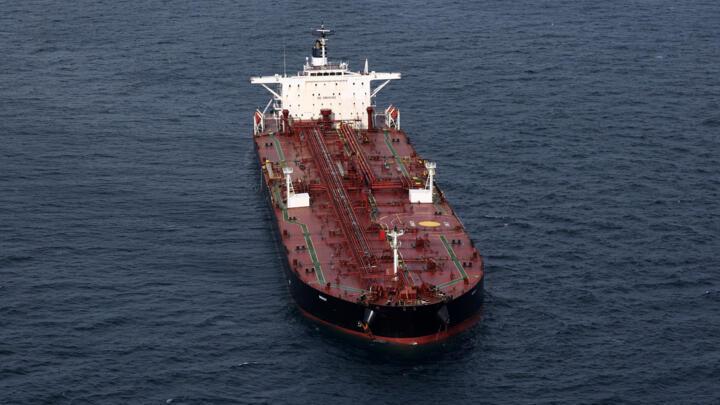A Russia-linked oil tanker that was recently detained by French authorities has resumed its voyage, according to reports from Mehr News Agency. The vessel, which drew international attention amid ongoing sanctions and geopolitical tensions, was stopped as part of efforts to enforce maritime regulations. The latest development marks a significant turn in the unfolding situation, raising questions about the enforcement of restrictions on Russian maritime activities.
Russia-linked Oil Tanker Detained by French Authorities Amid Sanction Enforcement
French maritime authorities have recently detained an oil tanker allegedly linked to Russian interests as part of ongoing efforts to enforce international sanctions. After a brief hold and investigation, the vessel was allowed to resume its journey, highlighting the complexities that arise when geopolitical tensions intersect with global energy trade routes. Officials emphasized that the action was consistent with the European Union’s regulatory framework aimed at curbing unauthorized oil exports connected to Russia.
Key points around the incident include:
- Inspection and Detainment: Initial detention was prompted by concerns over suspected sanction violations.
- Compliance Verification: Authorities conducted thorough checks on cargo documentation.
- Release Conditions: The vessel resumed operations after satisfying all regulatory requirements.
- Ongoing Surveillance: France plans to maintain vigilance over similar shipments to enforce compliance.
| Date | Action Taken | Outcome |
|---|---|---|
| April 20, 2024 | Vessel Detained at Port | Inspection Initiated |
| April 22, 2024 | Verification Complete | No Sanction Breach Found |
| April 23, 2024 | Vessel Released | Voyage Resumed |
International Reactions and Diplomatic Implications of the Tanker’s Release
The decision to release the Russia-linked oil tanker, which had been impounded by French authorities, sparked a wave of responses across the international diplomatic landscape. Western nations expressed a mix of relief and caution, with several governments reiterating their commitment to enforcing sanctions while maintaining open channels for dialogue. In particular, the European Union underscored the need for transparency in maritime operations and the enforcement of international law at sea. Meanwhile, countries aligned with Russia viewed the release as a positive step toward de-escalation and called for the depoliticization of maritime trade routes.
- United States: Emphasized vigilance, vowing to continue sanction enforcement.
- European Union: Advocated for stricter monitoring of maritime traffic.
- Russia: Welcomed the release, urging respect for commercial navigation rights.
- China and India: Called for balanced approaches to maintain energy security.
| Country | Response | Implications |
|---|---|---|
| France | Initial seizure, later release | Demonstrated legal scrutiny; balanced diplomatic pressure |
| Russia | Strong condemnation of seizure | Heightened geopolitical tensions |
| United Kingdom | Support for sanctions enforcement | Reinforced alliance unity |
Navigating Legal Complexities Surrounding Sanctions and Maritime Security
As maritime trade increasingly becomes a focal point in geopolitical disputes, the enforcement of sanctions presents multifaceted legal challenges. The recent case involving a Russia-linked oil tanker detained by French authorities underscores the delicate balance between national security interests and international maritime law. States must meticulously navigate complex regulatory frameworks to ensure compliance with sanctions while respecting the freedom of navigation principles codified under the United Nations Convention on the Law of the Sea (UNCLOS).
Legal authorities and maritime operators alike face a dynamic regulatory environment shaped by:
- Varying interpretations of sanctions regimes by different jurisdictions
- Coordination challenges among international enforcement agencies
- Risks of prolonged detentions affecting commercial interests and leading to disputes in arbitration
| Aspect | Legal Concern | Implications |
|---|---|---|
| Sanctions Enforcement | Jurisdictional reach and authority | Potential diplomatic friction and litigation risks |
| Maritime Security | Inspection and detention protocols | Operational delays and insurance complications |
| International Coordination | Information sharing limitations | Fragmented enforcement and inconsistent sanctions application |
Recommendations for Strengthening Oversight of Sanctioned Vessels in European Waters
Enhancing monitoring mechanisms is pivotal to prevent sanctioned vessels from operating undetected in European waters. Authorities should implement advanced satellite tracking systems combined with AI-driven analytics to detect irregular movements and flag potential violations in real time. Additionally, fostering cross-border cooperation between maritime agencies should become standard practice, ensuring rapid information exchange and coordinated interventions to deter sanction evasion effectively.
- Mandatory AIS compliance checks with automatic alerts for signal tampering or shutdowns
- Regular on-site inspections in key maritime hubs by joint multinational task forces
- Enhanced transparency through publicly accessible vessel sanction registers
The establishment of a centralized database for sanctioned vessels would streamline enforcement and create accountability. Coupling such initiatives with tougher penalties for non-compliance will reinforce deterrence. Europe’s maritime security framework must adapt swiftly to circumvent sophisticated sanction-busting tactics and ensure sovereignty over its territorial waters remains uncompromised.
| Recommendation | Expected Impact |
|---|---|
| AI-Powered Vessel Tracking | Real-time detection of sanction breaches |
| Joint Multinational Inspections | Increased enforcement presence and deterrence |
| Public Sanctions Registry | Greater transparency and public accountability |
Insights and Conclusions
The resumption of the Russia-linked oil tanker’s voyage marks a significant development amid ongoing geopolitical tensions and sanctions enforcement efforts. As investigations continue, authorities remain vigilant in monitoring maritime activities to ensure compliance with international regulations. The incident highlights the complexities facing global energy trade and the challenges confronting nations in navigating a rapidly evolving geopolitical landscape. Further updates are expected as the situation unfolds.




